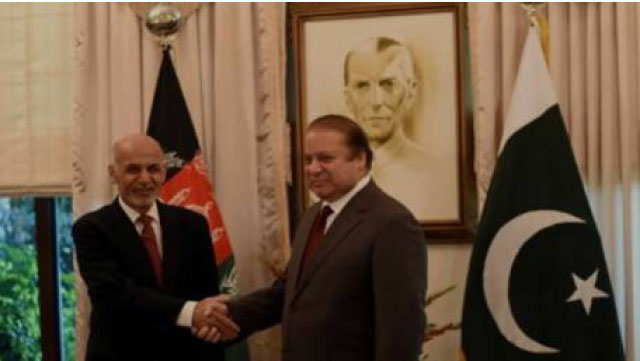ISLAMABAD - A conference aimed at shoring up support for Afghanistan opened in the Pakistani capital, Islamabad, on Tuesday, with a top Afghan official calling for an urgent, united response to the global menace of militancy.
The "Heart of Asia" meeting, an annual gathering of Asian and other countries, comes months after the first, inconclusive talks between the Afghan government and the Taliban.
"The wave of terrorist activities, including those of Daesh in various parts of the region and the world, once again reminds us of the gravity of this menace confronting today's humanity and the urgency for a united position against this evil phenomenon," Afghan Deputy Foreign Minister Hikmat Khalil Karzai told the conference.
The Islamic State militant group is also known as Daesh.
The two-day meeting will focus on energy, infrastructure and investment deals to shore up commitment to Afghanistan but the threat of an intensifying Taliban insurgency will hang over proceedings.
The Afghan Taliban and the government held inaugural talks in Pakistan in July, but the effort to end the 14-year insurgency stalled when after news leaked that Taliban leader Mullah Mohammad Omar had been dead for two years.
News of Omar's death triggered a violent split in the Taliban, further undermining hopes for the negotiations.
The United States hopes Pakistan will help resuscitate the talks, a senior U.S. official said.
"Pakistan has real influence with the Afghan Taliban, and our hope is that it will use that influence to encourage the Taliban to engage in the reconciliation process," U.S. Deputy Secretary of State Antony Blinken told Reuters in India as he prepared to fly to the conference.
But chances of a resumption of talks soon appeared remote given the turmoil within the Taliban. Pakistan denies being able to influence the militants who are fighting to expel foreign forces and bring down the Western-backed government in Kabul.
Afghan President Ashraf Ghani will attend the second day of the conference on Wednesday.
Cooperation between Afghanistan and Pakistan is seen as essential for improving stability in the region but hopes for warmer ties after Ghani was inaugurated were quickly dashed, largely because of a series of bomb attacks in Kabul in August.
Many Afghans, including Ghani's political opponents, accuse Pakistan of backing the Taliban, restricting Ghani's efforts to improve relations with Pakistan after years of acrimony.
Pakistan denies supporting the militants and says it wants a peaceful neighbour over its western border.
On Monday, Ghani said Afghanistan and Pakistan had been fighting a 14-year-long "undeclared war".
Each nation accuses the other of supporting insurgents across their border as proxy forces.
On a more positive note, Indian Foreign Minister Sushma Swaraj will attend the Islamabad gathering.
The first visit by India's top diplomat to Pakistan in three years raises hopes that relations between the nuclear-armed rivals might improve.
Their national security advisers met on the weekend in Bangkok, three months after cancelling talks. (Reuters)

